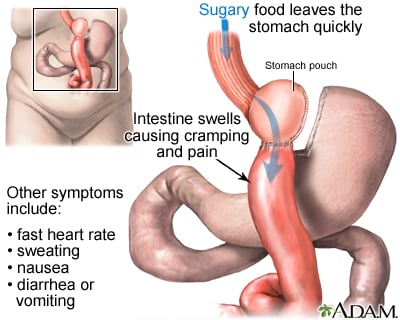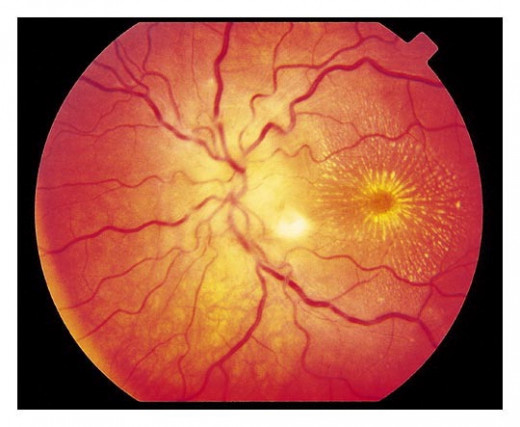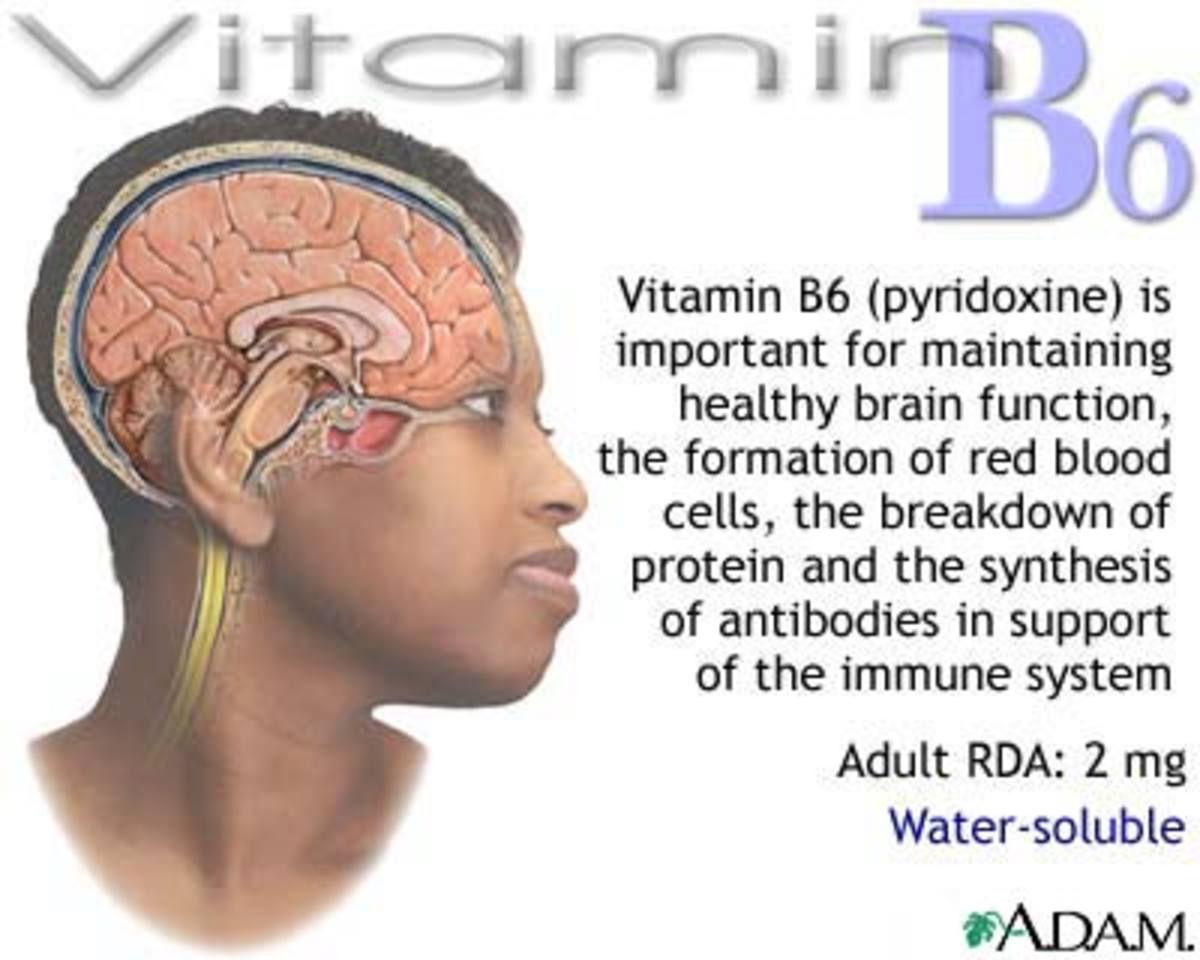Cyanocobalamin (Vitamin B12): Nutritive Significance, Clinical Presentation Of Deficiency And Treatment
Blind Loop Syndreomes: Causing Malabsorption Of Vitamin B12

A General Overview And Etiology
Deficiency of vitamin B12 or folates leads to abnormality in DNA synthesis, characterised by megaloblastic erythropoiesis and similar changes in many tissues in the body.
Absorption of B12: The dietary vitamin B12 which is bound to proteins has to be liberated from them to enable absorption. Cooking converts a part of these into dialyzable form. Low pH achieved in the stomach helps further liberation of this vitamin. After liberation, cobalamin is bound to the instrinsic factor (IF) which is a glycol-protein in the gastric juice. Proteolytic enzymes of the pancreas play a part in this process.
The vitamin B12-IF complex is taken up by receptor sites present in the microvilli of the ileum by passive adsorption. In the plasma cyanocobalamin remains bound to a polypeptide of molecular weight 38, 000 known as transcobalamin II (TC II). This complex passes into cells and its B12 is liberated by lysosomal enzymes. Liver can store up to 2 mg of vitamin B12 which is adequate for several years. The daily requirement of B12 is 1 to 2 ug. Meat, liver, egg, dairy products and yeast contain adequate amounts of this vitamin. Purely, vegetable sources are deficient in vitamin B12. Therefore vegans (persons who do not take any form of animal foods or dairy products) suffer from nutritional deficiency. Normal levels of vitamin B12 in serum rangers from 120 to 900 pg/ml in Indian subjects for instance.
Etiology:
- Malabsorption states- diseases of the ileum
- Dietary inadequacy- vegans.
- Intrinsic factor deficiency- pernicious anemia. This is usually acquired, rarely this may be congenital.
- Chronic disorders destroying the gastric mucosa and partial or total gastrectomy.
- Blind loop syndromes- with colonization of the small intestine by bacteria.
- Pancreatic insufficiency
- Familial deficiency of transcobalamin II.
- Inherited disorders of vitamin B12 metabolism.
- Interference with absorption of vitamin B12 by drugs, e.g PAS colchicines, phenformin, neomycin.
Optic Neuritis: A Symptom Of Vitamin B12 Deficiency

Cyanocobalamin
Effects Of B12 Deficiency
Hematological: Megaloblastic anemia develops owing to diminished red cell production and dyserythropoiesis. In addition, cells from other organs with rapid cell turnover such as the gastrointestinal tract and cervico- vaginal mucosa also show similar abnormalities. The central nervous system and peripheral nerves are also affected. The neurological lesions include subacute combined degeneration of the spinal cord, optic neuritis and demyelination of the cerebral white matter and peripheral nerves. The specific role of vitamin B12 in neuropathy is not fully understood. The occurrence of neuropathy does not bear any direct relationship to the severity of anemia.
Treatment
Dietary deficiency can be corrected by giving 1 to 2 ug of vitamin B12 orally. If megaloblastic anemia has developed, larger doses are required (100 ug/day) oral, if absorption is reliable. Otherwise, 1000 ug of hydroxocobalamine is given intramuscularly once a week for 3 to 4 weeks and thereafter the daily dietary supplementation of 1 to 2 ug is continued.
© 2014 Funom Theophilus Makama









